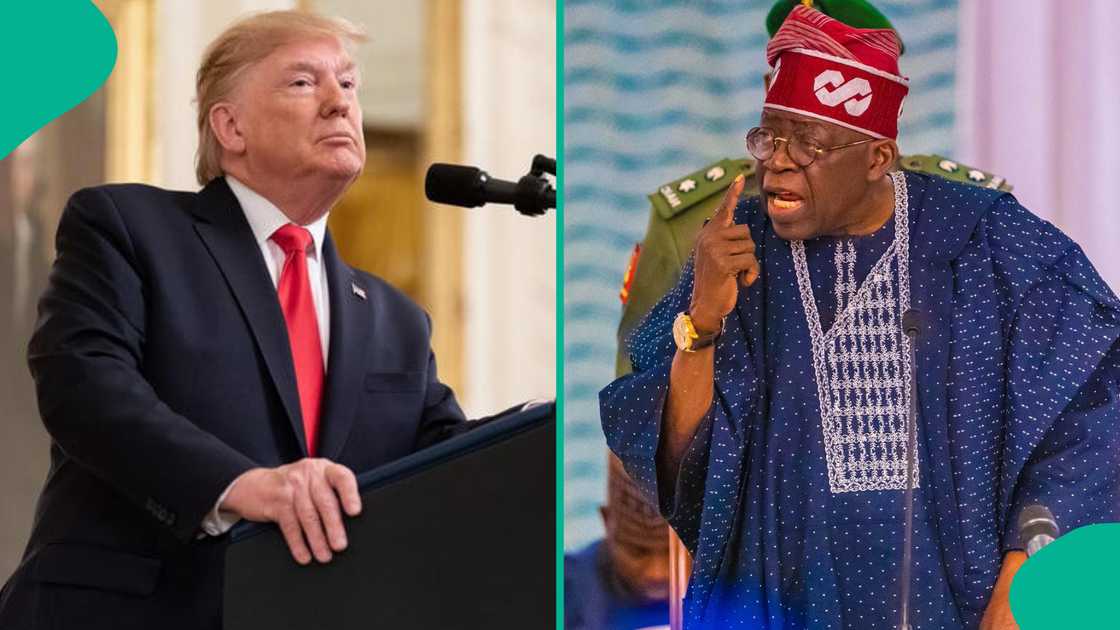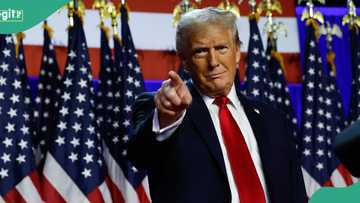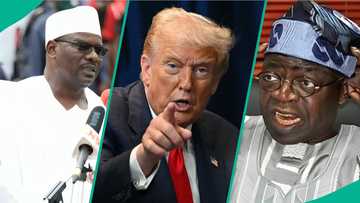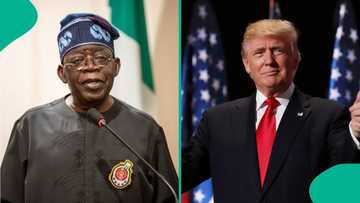Economic Implications of Being Country of Particular Concern on Nigerians, Analysts Speak
- The Donald Trump has listed Nigeria as a Country of Particular Concern (CPC), raising fears of severe economic sanctions
- Trump disclosed in his statement that the US could cut aid to Nigeria over the alleged Christian killings in the North
- However, experts have warned that the US action could lead to severe consequences for Nigeria, especially crude oil trade
Pascal Oparada is a journalist with Legit.ng, covering technology, energy, stocks, investment, and the economy for over a decade.
On Friday, October 31, 2025, U.S. President Donald Trump officially redesignated Nigeria as a Country of Particular Concern (CPC) over alleged killings of Christians in the northern part of the country.
In a strongly worded statement, Trump said:
“Christianity is facing an existential threat in Nigeria. Thousands of Christians are being killed. Radical Islamists are responsible for this mass slaughter. I am hereby making Nigeria a ‘country of particular concern."

Source: Twitter
He added:
“When Christians, or any such group, are killed like is happening in Nigeria (3,100 versus 4,476 worldwide), something must be done! I am asking Congressman Riley Moore, together with Chairman Tom Cole and the House Appropriations Committee, to immediately look into this matter and report back to me.”
Experts warn of economic fallout
Experts warn that the U.S. decision could trigger serious economic consequences for Nigeria, particularly if Washington decides to impose sanctions or trade restrictions.
Financial analyst Osas Igho told Legit.ng:
“If Trump’s threats are taken literally, the U.S. could place embargoes on Nigeria or pressure other countries to reduce or halt trade with us. The U.S. is one of Nigeria’s top buyers of crude oil, and any sanctions could worsen poverty and destabilize our economy.”
U.S.–Nigeria trade: A delicate balance
According to trade data, the U.S. recorded a $576 million trade surplus with Nigeria in the first half of 2025, a sharp turnaround from a $779 million deficit in the same period of 2024.
This shift was driven by a 41% increase in U.S. exports to Nigeria and a 12% decline in imports from Nigeria between January and June 2025.
- U.S. exports: Crude oil, wheat, and vehicles
- U.S. imports: Nigerian crude, cocoa beans, and soybean meal
The change in trade dynamics reflects a combination of U.S. tariff policy adjustments and Nigeria’s domestic economic reforms aimed at stabilizing its foreign exchange market and boosting non-oil exports.
Dangote Refinery’s role and Nigeria’s oil struggles
Data from the Organisation of the Petroleum Exporting Countries (OPEC) shows that Nigeria’s oil production averaged 1.468 million barrels per day (mbpd) in the first quarter of 2025, far below the 2 mbpd target set in the federal budget.
Despite production challenges, the Dangote Refinery has ramped up operations, importing crude from the U.S. to sustain output.
In September 2025, two major oil traders, Vitol and Sunoco, received the first U.S. import of petrol from the Lagos-based refinery, marking a key milestone in meeting global standards for fuel exports.
What could happen next

Read also
Breaking: Trump declares Nigeria ‘country of particular concern’ over alleged Christian genocide
If the CPC designation escalates into sanctions or trade restrictions, Nigeria could face:
- Reduced oil exports to the U.S., affecting government revenue.
- Foreign investment withdrawal due to political and reputational risks.
- Increased pressure on the naira as foreign exchange inflows drop.
- Worsening poverty and inflation, particularly if energy and import costs rise.
Analysts emphasize that diplomatic engagement will be critical to prevent a full-blown trade crisis between both nations.

Source: Getty Images
UK removes tariffs on 3,000 Nigerian products
Legit.ng earlier reported that the United Kingdom has announced a sweeping trade gesture to Nigeria, unveiling that nearly 3,000 Nigerian products are now eligible for zero and reduced tariffs under its Developing Countries Trading Scheme (DCTS).
The move, which is expected to boost Nigeria’s export competitiveness and industrial growth, comes when Nigeria’s new reciprocal import ban on selected U.S. goods is sparking diplomatic unease across the Atlantic.
The UK Head of Trade Policy for Nigeria, Ms. Mujina Kaindama revealed the development during the UK DCTS Roadshow held in Kano.
Source: Legit.ng





